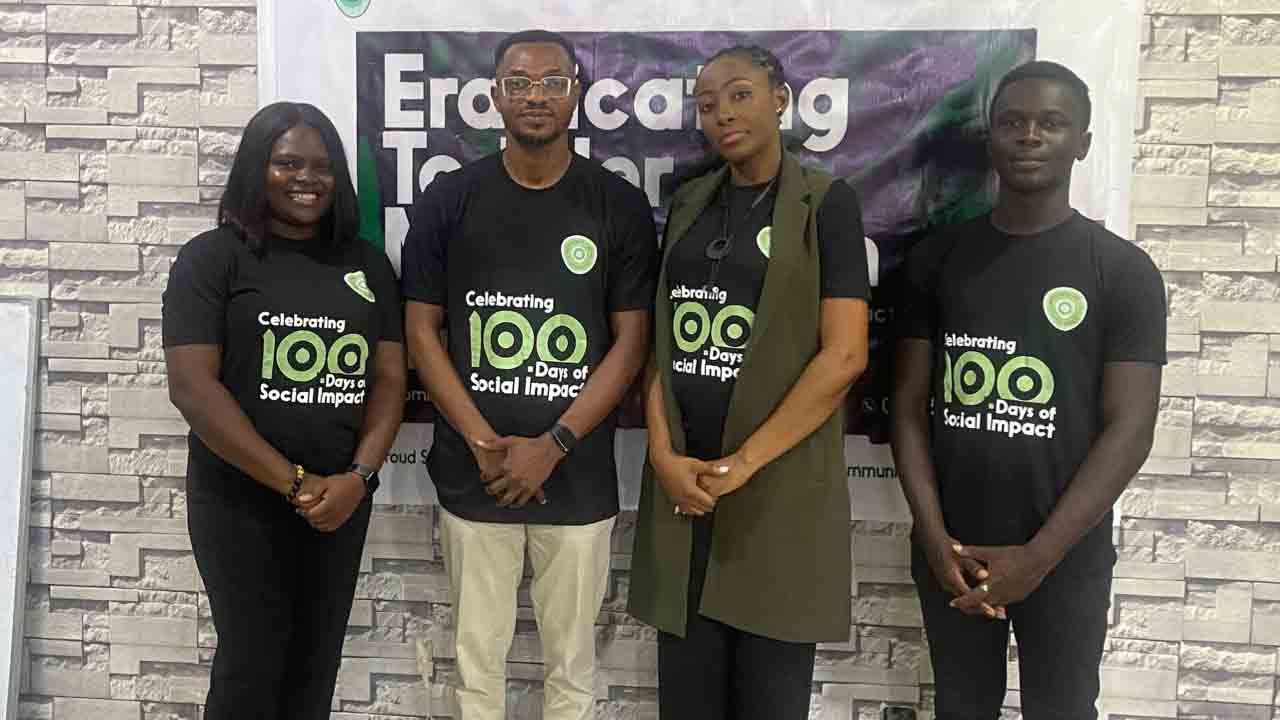
Disturbed by statistics that Nigeria has second highest burden of stunted children in the world, with prevalence rate of 32 per cent of under-five children, a social impact project, Community Pot, is concluding arrangement to reach 100,000 malnourished children by 2030.
The initiator, Kemi Jeje, who disclosed this at the 100 days of social impact in Lagos, submitted that the group will formally unveil the initiative today in Ajegunle.
Describing the number of malnourished children in Nigeria as unacceptable, she said there was need to look out for more of them.
Jeje observed that some two million children suffer Severe Acute Malnutrition (SAM), with only two out of every 10 kids, getting treatment.
Founded in May 27, 2022, Community Pot tailored its first project after the Sustainable Development Goals (SDG) 2.2 to eliminate malnutrition among 500 children under age five in Lagos State.
Jeje said: “So far, we have successfully adopted 104 malnourished toddlers into our malnutrition eradication programme, through the support of eight implementors, including Lagos Food Bank, Mawumadoka Foundation, Steer for newborn, and others, Community Pot has reached more children in need of immediate nutrition. We have identified that there are more infants in need of care, thus, prompting the need for us to upscale to reach more communities and imprint a sustainable ecosystem in Nigeria.
“To this end, we are launching the voices for better nutrition campaign to advocate and emphasize the importance of adequate nutrition in Nigerian children’s lives, health, and future. We believe the campaign will help draw the attention of relevant stakeholders to establish policies and reforms that will guarantee a healthy future for under-five children
“On Thursday, September 8, 2022 (today), we will also launch the ‘Eradicating Toddler Malnutrition Campaign’ in the Ajegunle area of Lagos to advocate for a sustainable ecosystem in Nigeria.
We will register at least 100 malnourished children and commence the implementation process by bringing together the social impact organisation in Ajegunle, the health centres, general hospitals, community midwives, churches, mosques, and the local government office.
“We are on the quest to provide nutritious supplementary food to advance children’s cognitive and physical development and maximise their abilities. However, we cannot do it alone.
Calling for support, Jeje who is also the Team Lead, at Wholeeats, said: “There are challenges ranging from financial support and acceptance of meals to identifying children in communities. We must also create ecosystems dedicated to scaling and sustaining social impact initiatives.
“As we continue this impact journey, we will keep Nigerians up-to-date on our implementation progress. In the meantime, we are calling for partnership and collaborations from stakeholders, implementors, and organisations to support the goal and leverage ecosystems to drive sustainable Impact in Nigeria.
Speaking on why her group embarks on the campaign, she said: “We are food formulators and we understand what malnutrition means, what it takes away from a child. We realised that there is malnutrition in pregnancy and there is a likelihood that we will include pregnant women because we have cases of children with cerebral palsy which would have been solved if we had met the woman during pregnancy.
“Our target is to reach out to 100,000 children by 2030; we will also be targeting other stakeholders and United Nations International Children’s Emergency Fund, now officially United Nations Children’s Fund (UNICEF) to be part of the project.
Speaking on how it intends to reach out to inner communities where there is a lot of poverty, she said: “We have a framework and we need more data from Lagos government to manage the system, and outside Lagos, we are talking to implementors in the north and other regions.






